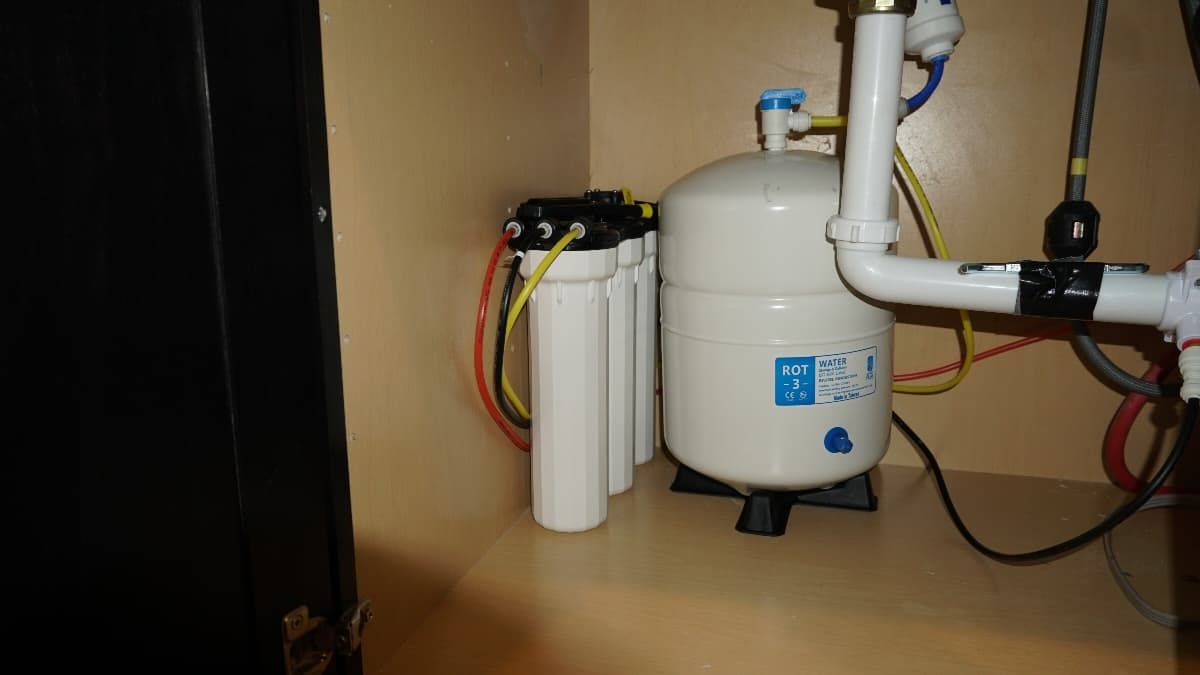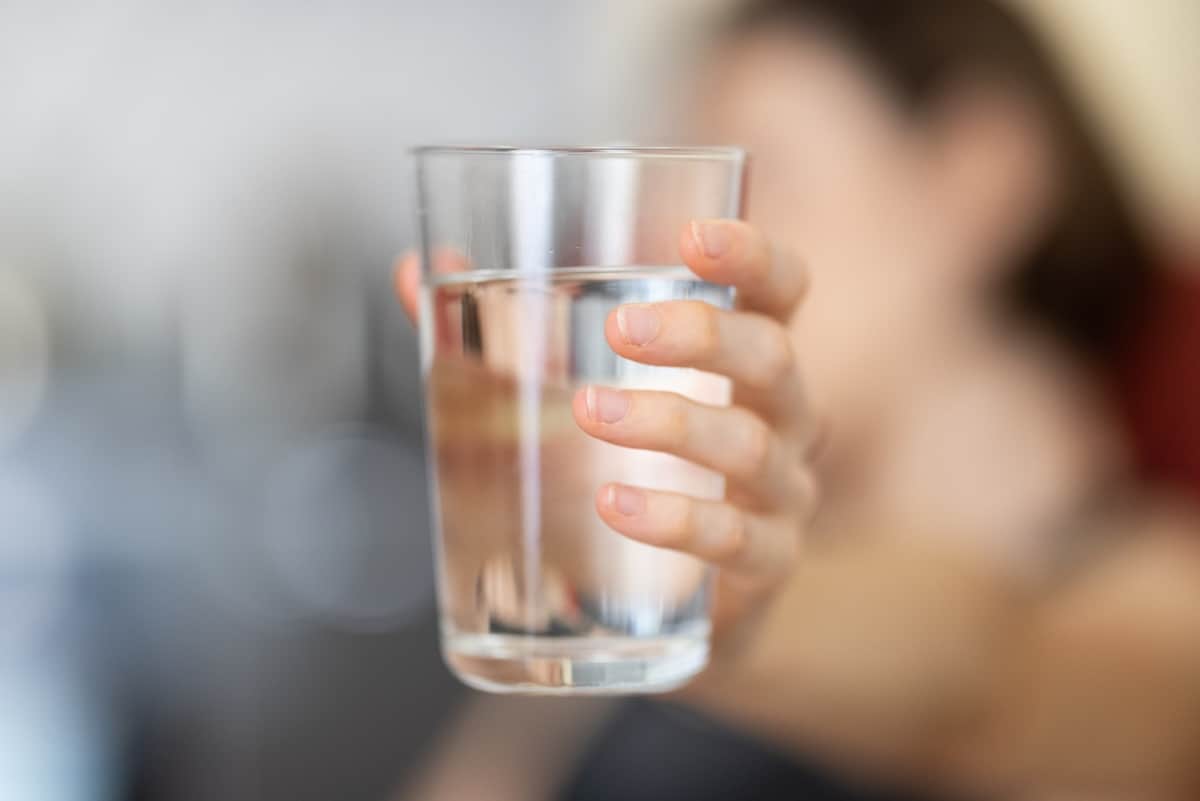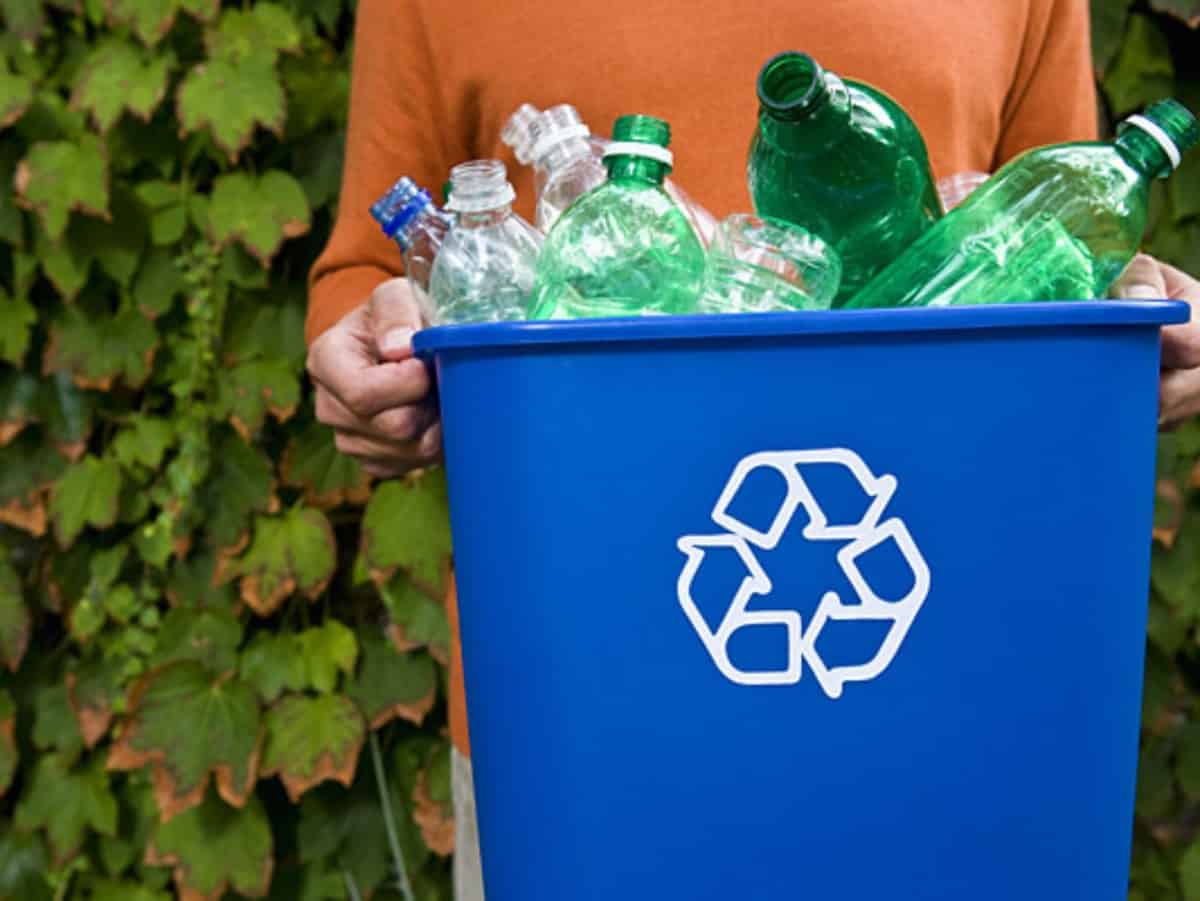There are many good reasons to use water filters. For example, water filtration improves the taste and smell of water. A good filtration system removes contaminants to ensure healthy water. Plus, if you swap water filtration for one-use water bottles, you are making a green choice. Plastic pollution is a growing problem. Humans create over 300 million tons of plastic every year, the same weight as our population on earth. It makes sense to wonder whether or not you can recycle water filters.
Why Should You Try to Recycle Water Filters?
Water filters contain different materials that may be harmful to the environment. The parts of the filter itself may contain valuable and recyclable components. For example, silver is often used in some types of water filters. Plus, the filters are trapping contaminants that may be harmful to the environment. It’s important to determine how to dispose of your used water filters.
What Types of Water Filters Are There?
Water filters come in five primary types. Each uses a different process to filter the water. Each version targets particular particles or contaminants for removal. Filters can live in your fridge, in a whole-home system, in a bottle or pitcher, in your sink, and elsewhere.
Mechanical Filters
In these filters, water passes through a filter to trap particles. The filter is usually wire mesh or a cartridge. As the water passes through, it catches sand, silt, clay, and other larger particles.
Absorption Filters
These filters often use specially-treated carbon to create a rough surface. The carbon in these filters usually begins as an organic matter like coconut shells or coal. The super-heated carbon has many cracks and crags that trap particles. Water passes through a carbon block or matrix. This will become clogged over time.
Sequestration Filters
These filters target the minerals which cause limescale and corrosion. They use a chemical reaction to bind calcium and magnesium in a solution. Food-grade polyphosphate is usually the acting agent that attracts harmful minerals. It does not remove the minerals, but rather keeps them contained to prevent harm. Boiling the filtered water may release the minerals from their bond. As a result, sequestration filters are not the best option for all uses.
Ion Exchange Filters
Ion exchange filters are a common choice to treat hard water used for cooking. As the name implies, they work by exchanging ions. In particular, the minerals calcium and magnesium swap with sodium or hydrogen ions. Boiling does not undo the filtration as the calcium and magnesium do not remain. This filter often uses small beads that contain exchangeable ions. When it stops working, the manufacturer can recharge the ions and return the filter. So you need not dispose of or recycle water filters of this type.

Reverse Osmosis Filters
In this filtration process, a thin membrane blocks fine particles. Water passes through at pressure, forced through tiny pores. Contaminants are too large for the pores to remain behind. This leaves behind a waste product sometimes called brine.
Complex Design Means Complex Recycling
Since water filters are complex in design, it is often not as simple as dropping them in your plastics bin. While some filters are 100% recyclable, not all are. Even those which are 100% recyclable may not be returnable via your household bin. Some local recycling facilities can take 100% recyclable water filters. Of these, some may allow you to deposit your filter in your household bin. Others will need you to bring your used filters to a local drop-off center. You will often not be able to recycle water filters that are not 100% recyclable in this way. Check with your local service provider to verify.
How To Recycle Water Filters
If your water filter is 100% recyclable and you have a place to send it, make sure it is completely dry. Some filters come apart for easy recycling. An example of this is the Filtrete system. The filter itself disconnects from the plastic casing. The casing gets recycled; the filter gets tossed.
What Types of Programs Exist to Recycle Water Filters?
- Brita filters can be recycled through a program called Gimme 5. Preserve then transforms recycled filters into plates, toothbrushes, cutlery, and food storage containers. You can return filters to Preserve by mail or drop-off in Massachusetts. Whole Foods also collects them in #5 plastic collection bins.
- Terracycle recycles Brita, PUR, and Everpure filters at no cost to consumers. Sign up, and they’ll send you a shipping label to cover the cost of returning the filters. Every filter mailed back earns points redeemable towards charities or for products. They’ll also accept packaging, reusable water bottles, and water pitches. Terracycle transforms recycled products into everything from garden tools to patio furniture.
- Everpure filters are 100% recyclable. The company provides a list of drop-off locations or you can mail them in.
- Filtrete Water Station filters are 100% recyclable as they use #2 plastic. The same sort is found in milk jugs. Toss the filtering material, and recycle the plastic in your recycling bin.
- Zero Water offers a recycling program with incentives. Send back two full-sized filters, and earn a coupon. The coupon is good for $20 off the purchase of a four-pack of new filters. The coupon reduces the cost of filtration and helps offset shipping fees.
- Mavea allows consumers to recycle water filters. Filters can return to the company or deposited in plastic recycling bins. Maeva’s filter contains silver which recycles for use in many new products.
- GE recycles all refrigerator water filters at no cost. The new one will come with a postage-paid envelope to return the old one to GE when you replace your old one.

Water Filter Recycling Advice to Avoid
You may have heard that you can recycle carbon water filters at home. Carbon is sometimes used as a soil amendment helpful to gardeners. Advice suggests you can break open your filter and sprinkle the carbon over your soil for a boost. Don’t follow this advice.
The purpose of your filter is to trap and store contaminants in your water. You do not want to take those stored contaminants and introduce them to your soil. While carbon is a good soil amendment, the other components in your filter may not be. Some filters also contain other minerals or elements which may be harmful to your soil.
A Note on Scams
Some companies offer recycling of water filters for a small fee. These are often scams. They prey on the concern of responsible citizens to turn a profit. Check with the manufacturer instead. They can tell you how to dispose of your filters. If they offer to recycle, it’s often free or comes with incentives or reimbursements. Save your coins.
When You Can’t Recycle Water Filters, Dispose of the Responsible Way
Don’t toss your used water filters in your trash bin if you can’t recycle them. Take a few extra moments to investigate proper disposal.
- A good starting point is the water filter manufacturer. Check their website or contact them. Often, they’ll have recycling programs. They may provide shipping labels or offer incentives to return the filter to them. If they do not, they can tell you how and where to dispose of your water filter safely.
- If the manufacturer is unhelpful, check your local recycling facility. Some offer programs to collect used water filters. They may allow you to recycle used water filters in your household collection bin. They may have a drop-off facility to recycle water filters at.
- When all else fails, take it to a hazardous waste center. An EPA-certified hazardous waste collection center will have the tools to dispose of your used filter.
It is easier to toss your used filter in the trash bin. Doing so may leave behind a toxic waste for others to deal with. There may be a program offered by the maker to return or recycle water filters. A little extra effort can give you the information you need to be safe and smart with your used water filter. You can feel good about your decision and it may even save you money on your water filtration costs.

Take the Worry out of Water Filtration
Allow ONIT Home to handle all your water filtration needs. From start to finish, our friendly and professional team of experts can assist. We can talk to you about your filtration needs and answer questions. Our friendly sales team can help you secure affordable financing for your budget.
We’ll install the system with our team of talented techs and can manage all the maintenance. With our excellent warranty and maintenance package, we’ll take the effort out. We will replace and recycle or safely dispose of used water filters when needed. You get healthier, tastier, safer water and help preserve the planet. Contact ONIT Home today to schedule your free water filtration consultation by visiting us online or giving us a call right now at 1-833-433-0331.



